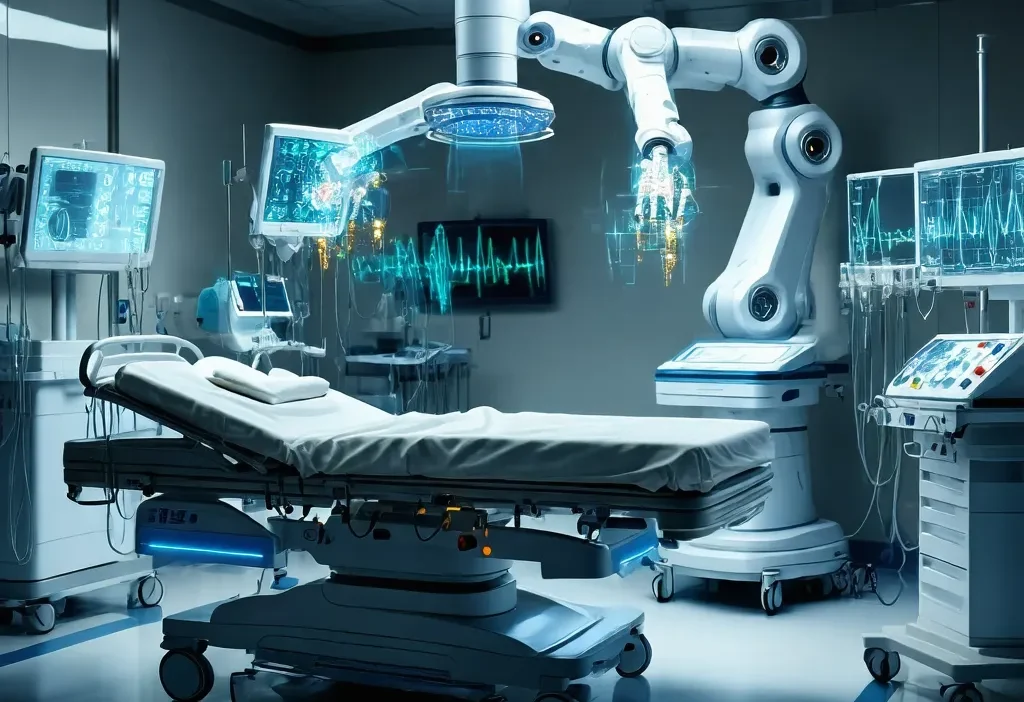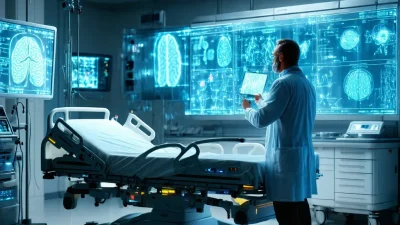How Technology is Revolutionizing Modern Healthcare
In the ever-evolving landscape of healthcare, technology stands as a beacon of innovation and progress. From artificial intelligence (AI) to the Internet of Things (IoT), these advancements are not just incremental improvements but transformative shifts that redefine how we approach health and wellness.
The Role of AI in Diagnostics
One of the most impactful areas where technology is making waves is in diagnostics. AI-powered tools like DeepMind Health are enhancing accuracy and speed in detecting diseases such as cancer, diabetes, and cardiovascular conditions. These systems analyze vast amounts of data to provide insights that human doctors might miss, significantly improving patient outcomes.
- Machine learning algorithms can predict disease outbreaks before they occur.
- AI-driven imaging tools offer more precise diagnoses than traditional methods.
- Natural language processing (NLP) helps in analyzing patient records for better treatment plans.
Telemedicine: Bridging the Distance Gap
The rise of telemedicine has been a game-changer, especially in remote areas. Platforms like Teladoc Health and Above All Telehealth allow patients to consult specialists without leaving their homes. This accessibility is crucial for those who face geographical or mobility challenges.
Telemedicine also plays a vital role in mental health, offering counseling services through secure video calls. During the COVID-19 pandemic, this technology became indispensable, reducing the need for in-person visits and lowering infection risks.
The Internet of Medical Things (IoT)
IoT devices are transforming healthcare by enabling continuous monitoring of patients. Wearables like Fitbit and Apple Watch track vital signs, providing real-time data to both patients and healthcare providers. This proactive approach allows for early detection of potential health issues, preventing complications.
Hospital IoT systems can manage equipment, optimize resource allocation, and improve operational efficiency. For instance, smart beds equipped with sensors adjust to patient movements, reducing the risk of bedsores while enhancing comfort.
Benefits Beyond the Bedside
The integration of technology in healthcare extends beyond direct patient care. Electronic Health Records (EHRs) streamline data management, making it easier to share information between providers and reduce errors. Blockchain technology is being explored for secure sharing of sensitive health data.
Moreover, virtual reality (VR) is finding applications in medical training, allowing students to practice surgeries in a risk-free environment. This not only enhances learning but also prepares the next generation of healthcare professionals for complex procedures.
Challenges and Considerations
While technology offers immense potential, it also presents challenges. Issues like data privacy, cybersecurity risks, and accessibility disparities must be addressed to ensure equitable benefits. Additionally, the high cost of implementing these technologies can create barriers in resource-limited settings.
There’s also a need for robust regulatory frameworks to govern AI use and data sharing. Ethical considerations, such as patient consent and algorithmic bias, are critical to maintaining trust and ensuring fairness.
The Future of Healthcare
Looking ahead, the convergence of AI, IoT, and telemedicine promises a future where personalized medicine becomes the norm. Imagine receiving health recommendations based on your genetic makeup or having nano-robots deliver targeted treatments within the body.
Collaboration between tech innovators, healthcare providers, and policymakers will be essential to overcome challenges and unlock this potential. By fostering an environment of continuous learning and adaptation, we can pave the way for a healthcare system that’s not just effective but also compassionate and inclusive.
In Conclusion
The integration of technology into healthcare is more than just a trend; it’s a necessity. As we navigate this digital revolution, let us focus on creating solutions that prioritize patient care, accessibility, and ethical considerations. The future of healthcare is bright, and with the right approach, we can ensure it benefits everyone.
Stay informed about the latest advancements in health tech by following industry news and expert insights. Together, we can shape a healthier tomorrow.





